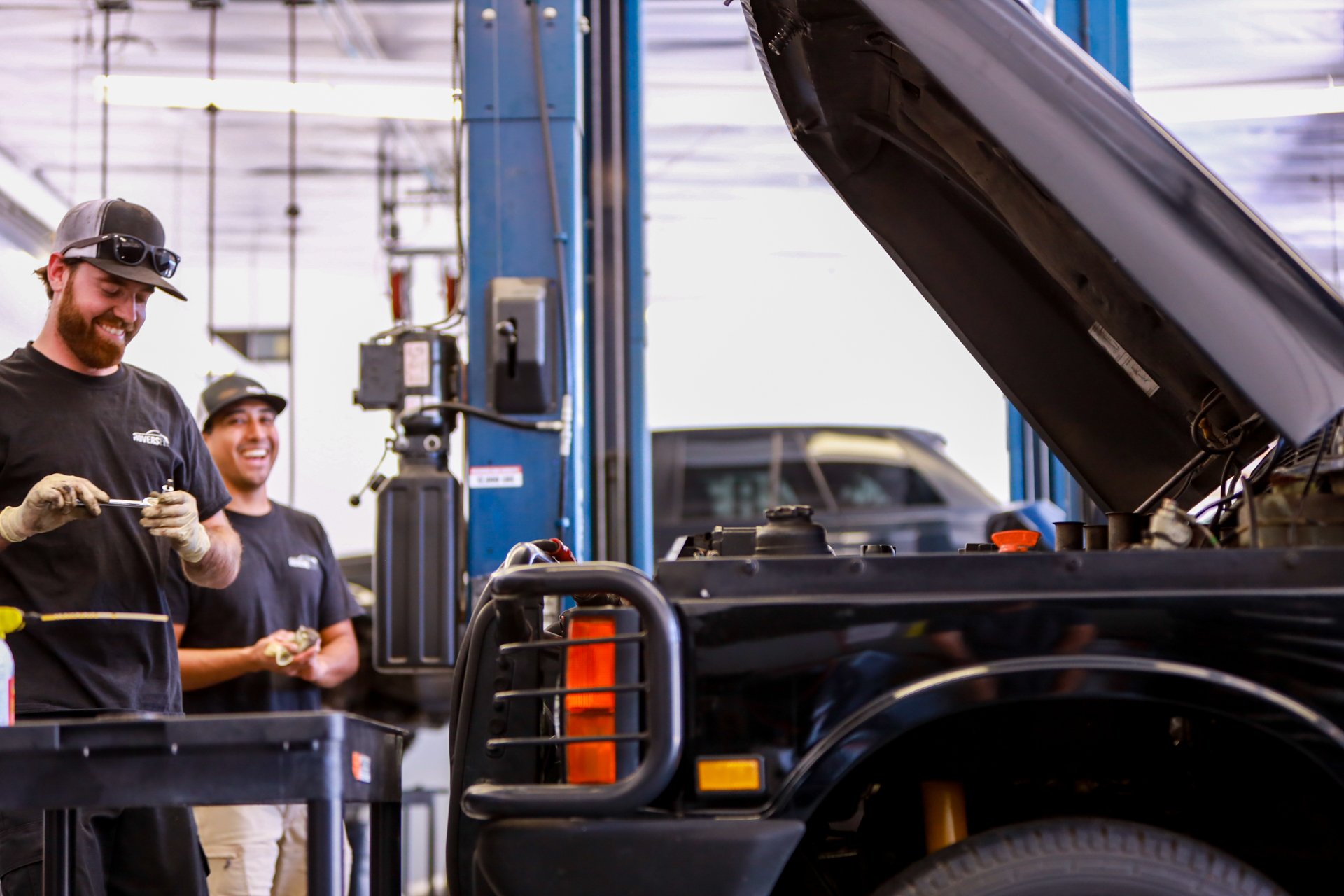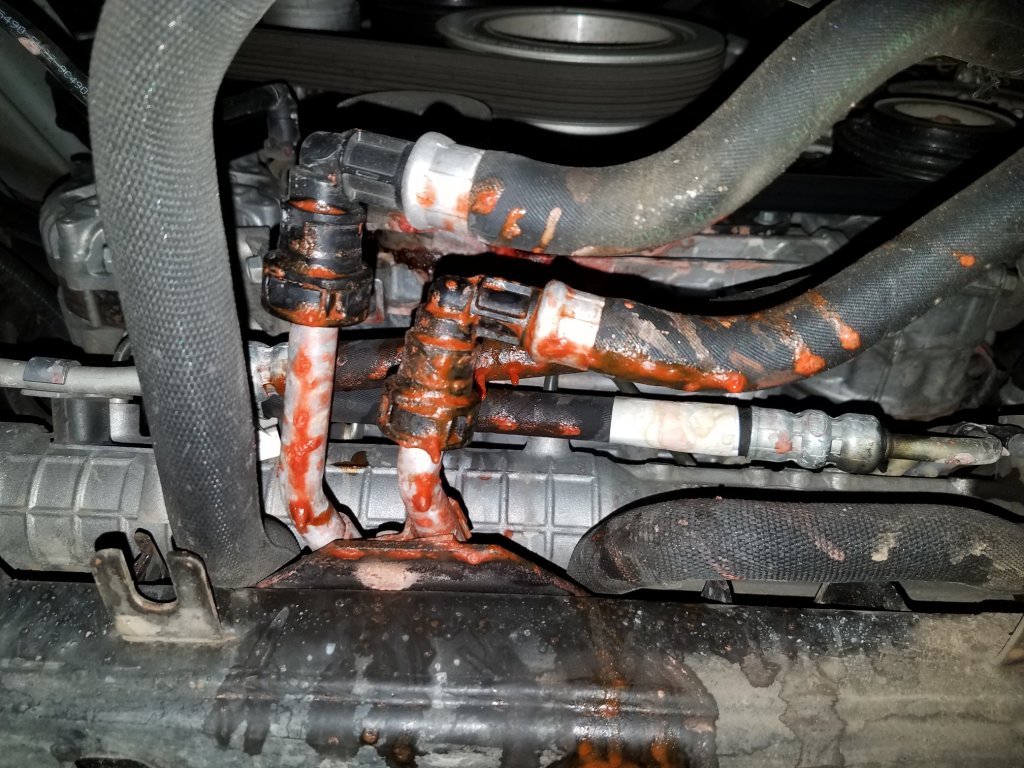7 Most Common Problems with Land Rovers
7 Most Common Land Rover Repairs - How to detect them and why they happen.
If you drive a Land Rover – be it from the Range Rover, Discovery or Defender family – you know that it’s a marque that was traditionally known for its mechanical reliability. But as the make has evolved and become more complex in pursuit of luxury in the face of even the most rugged of terrain, several common failures have emerged.
Though our experience. The most common Land Rover problems include oil leaks, airbag malfunctions, electrical issues, steering shaft problems, and parking brake failure across all models and model years.
Whether you currently own a Land Rover or are in the market for one, it’s good to be aware of the issues.
What are the most common Land Rover problems?
Below is a list of 7 issues you are most likely to experience while owning your Land Rover. We’ve included symptoms as well as reasons why this occurs.
Outlet coolant leaks repair
Symptoms:
Your Car Smells Sweet. You may notice a sweet smell from your vents.
Your car windows become foggy.
Your car is blowing cold air into the cabin.
Your car is devouring coolant.
Your car's cabin is cold, but the engine is hot.
Reasons:
There’s a hole in the radiator
You have a leaky radiator cap
Your head gasket is blown
Your water pump has failed
You have a problem with your expansion tank
2. Oil leakage
Symptoms:
Greasy stain under your car
A burning smell
Smoke coming from your engine
The oil light on
Reasons:
damaged valve cover gasket
a defective valve cover
the oil pan itself.
Putting off fixing your oil leak can lead to even bigger problems and higher service bills.
3. Suspension Faults
Symptoms:
Amber indicator will light up with messages like “SUSPENSION FAULT. STOP ENGINE. STOP SAFELY.”
Land Rover is leaning to one side (t’s often the rear end that sags down)
If the car does a “nose dive” when coming to a stop
Land Rover is taking longer to stop than it should
Fails the bounce test
How to perform Bounce Test
Walk to one corner of your Land Rover.
Push down hard on the bumper.
Watch as it rises back into place.
Repeat Steps for each wheel.
If it takes a longer time to rise back up or if it bounces before settling into natural position, you likely have a suspension problem at that corner. The corner will pop back into place and settle quickly when the suspension is healthy.
Reasons:
The car's air struts. Made in part with a flexible rubber, they're prone to cracking, rotting, or being punctured. And most of them wear out at about the same rate, so if one needs replacing, you can bet the other three will soon.
4. Parking brake failure
Symptoms:
Your parking brake may fail to release.
It may make a screeching noise.
Reasons:
Electric parking brake module failure
Improper cable adjustment
From parking brake shoes being corroded incorrectly adjusted, or worn out.
5. Steering shaft problems
Symptoms:
Your vehicle is having difficulty turning
Turning makes an unusual sound
Your wheel doesn’t immediately re-center after turning
When attempting to adjust your wheel’s vertical tilted position, your wheel does not lock automatically after adjusting.
The wheel bearings on your steering shaft are corroding or are highly rusty.
Reasons:
Most common cause of a bad steering shaft is a broken seal. This causes the grease on needle bearings to dry up, allowing moisture to penetrate the bearings, causing corrosion and rusting. The bearings will fail to function, which causes damage to the steering shaft.
Steering shaft failure can wreak serious havoc on your steering system and is a safety risk. You should not drive until your Land Rover is taken in for inspection.
6. Gearbox / Clutch
Symptoms:
How to tell if your clutch is slipping
Squeaky or unusual rumbling/gurgling noises when pressure is applied to the pedals.
A burning smell when revving the engine.
Difficulty changing gears.
The clutch pedal sticking, vibrating or feeling spongy. ...
Poor acceleration, despite the fact you're still able to rev your engine.
Reasons:
Sudden failure is most often caused by
A broken or loose clutch cable
Linkable
A failed hydraulic master/slave cylinder.
There can also be leaks in the hydraulic line or even the disc could be contaminated with something like dirt or debris
7. Electrical issues
Symptoms:
Your Land Rover won't start - you turn your key and hear clicking, grinding, or no sound at all.
Interior or dashboard lights do not illuminate properly.
The rear camera does not come up on the main screen
Choppy lag of the frame rate on the screen
Fuel pumps fail
The climate control turns itself off and on
Center display screen turns black and stays that way for long periods of time
Reasons:
Faults can arise from simply having switches fail, to the more serious issues like full-on vehicle shutdowns. Earlier vehicles also have a bad reputation for electrical complications. Each model year has key faults.
Conclusion
Land Rovers like any brand come with their fair share of likely issues. Keeping up with recall notifications, service schedule, and regular maintenance will ensure your Land Rover is Road Worthy. Dealerships generally charge a lot for services that don’t require much material or labor. At Rovers Elite our goal has always been keeping the customer experience pleasurable. Which means fast, affordable and high quality parts.
Located in Thousand Oaks
WE SERVICE
Our Techs are Factory Trained by Land Rover
We specialize in Land Rover Repair. Come here for your first service and start saving today.








